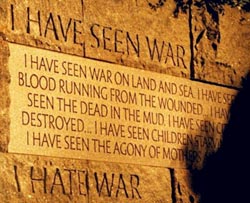
So my husband went to the Community Kitchen a week earlier than scheduled, to deliver kits with tolietries. They will be given to folks who need them. I expect that when we have the Kanal Kitchen meal tomorrow here at Trinity, there will many stories.
I called Carl Mazza, the leader of Meeting Ground. This ministry provides shelters for the homeless community in our County. He said he was blessed and encouraged by my call; I was glad to have someone understand and agree with my sorrow and anger. He said that he is so jaded after so many years in this ministry, that he cannot even get angry about it. He can only react. That made me hold even more tightly to my anger and passion, even as I was amazed at the simultaneous depth of his response and lack of anger.
Carl shared that on Sept. 6, there will be a county commissioner meeting in Elkton at 7p.m. I am encouraging folks to attend. (Unfortunately, I have a commitment to be in Washington D.C. that day/night.) He also said that Meeting Ground will be looking to partner with at least a dozen local churches to house a rotating shelter for folks on cold winter nights. Cecil County simply lacks the capacity to accomodate the homeless population that is now present. I hope and pray that our church family will be one of the first to say that we will welcome these folks into temporary shelter for at least one week this winter.
Nowhere in the Bible does it say "God helps those who help themselves" or "Pull yourself up by your bootstraps." And it certainly does not say "it is not our responsibility to give them a place to live" to quote Mr. Storke in the article.
But Scripture is filled with references to care for the poor, the stranger, and the alien among us. In the Hebrew Bible, God teaches us to remember that God delivered the Hebrew slaves out of Egypt. To honor God for all God has done, and to remember that God's people were once slaves, aliens, foreigners, and generally unwelcome people, God commands his people to care for folks who are in similar circumstances.
Translation: to show your love for God, and to remember your true indentity, show love and compassion for poor and oppressed folks.
Jesus continues this teaching in the New Testament when he says in Matthew 25 when we serve someone who is hungry, naked, sick, or in prison, we are serving Christ himself. The blessing of this flows two ways: the person in need has their material needs met, as well as experiences God's grace in action. The person providing for someone's material needs is given the blessing of seeing the face of Christ right here, right now.
I know that anger, when well directed, is a God given emotion to motivate change. I hope that God uses me and our community of faith to respond to this injustice. This is a matter of life and death; literally so for homeless folks. And for people of faith, it is a matter of spiritual life and death. To ignore this would to be ignore Christ.






